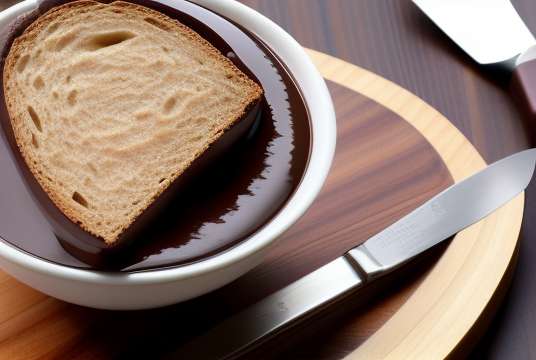Clean eating has been a buzzword in the wellness world for years, but what does it actually mean? Essentially, it's all about consuming whole, real foods that are minimally processed and free from additives. This not only benefits your physical health, but can also have a positive impact on your mental wellbeing, as what you eat can directly affect your brain function and mood.
But while the idea of detoxing can often conjure up thoughts of deprivation and extreme diets, it's important to remember that it doesn't have to be this way. Instead, focusing on nourishing your body with nutrient-dense foods can be a gentle and effective way to support your body's natural detoxification processes.
In this article, we'll explore the benefits of clean eating for both your body and mind, as well as share practical tips for incorporating these principles into your daily routine. Whether you're looking to kick-start a healthy lifestyle or simply want to feel more energized and focused, there are plenty of reasons to embrace the clean eating movement.
Clean Eating for a Clear Mind: Detox Without Deprivation

What is Clean Eating?
Clean eating is a lifestyle that prioritizes consuming whole, unprocessed foods while avoiding processed and artificial ingredients. It focuses on fresh fruits, vegetables, whole grains, legumes, lean proteins, and healthy fats that nourish the body and promote optimal health. Clean eating also emphasizes mindful and intuitive eating habits, such as listening to hunger cues and savoring every bite.
Why is Clean Eating Important for Detox?
Clean eating can help support the body's natural detoxification process by reducing its exposure to harmful toxins and chemicals found in processed food. When we eat a diet rich in whole foods, the body gets more nutrients and antioxidants to strengthen its immune system, improve digestion, and filter out toxins more efficiently. Additionally, clean eating habits like staying hydrated, getting enough sleep, and practicing stress management can further promote detoxification.
How to Start Clean Eating for Detox?
- Choose whole, unprocessed foods over processed ones.
- Fill half your plate with vegetables and fruits.
- Include lean proteins like chicken, fish, and tofu.
- Opt for whole grains like quinoa, brown rice, and oats.
- Avoid added sugars and sweeteners.
- Stay hydrated by drinking plenty of water and unsweetened beverages.
- Reduce alcohol and caffeine intake.
- Practice mindfulness and intuitive eating habits.
In conclusion, clean eating can provide a sustainable and fulfilling way to detoxify your body without feeling deprived or restricted. By making simple changes to your diet and lifestyle, you can improve your overall health, boost your energy levels, and clear your mind.
Understanding Clean Eating

What is clean eating?
Clean eating is a diet that focuses on eating whole, unprocessed foods and avoiding highly processed foods, such as fast food and packaged snack foods. It promotes eating foods that are as close to their natural state as possible.
Why is it popular?
Clean eating has become popular because it emphasizes consuming nutrient-dense foods that provide the body with the vitamins and minerals it needs to function properly. It is also seen as a way to reduce the intake of harmful additives, such as added sugars and preservatives.
What are the benefits?
- Improved digestion and weight management
- Increased energy levels
- Better sleep quality
- Reduced risk of chronic diseases, such as heart disease and diabetes
How to incorporate clean eating into your lifestyle
- Avoid processed and packaged foods
- Choose whole, unprocessed foods such as fruits, vegetables, whole grains, and lean proteins
- Limit added sugars and salt
- Drink plenty of water and avoid sugary drinks
- Read food labels to understand what ingredients are in the foods you are consuming
The Benefits of Clean Eating

Improved Digestion
Clean eating involves consuming whole, unprocessed foods that are high in fiber and essential nutrients. This makes it easier for the body to digest and absorb these foods, leading to an overall improvement in digestive health. Clean eating has been linked to a decrease in digestive issues such as bloating, constipation, and acid reflux.
Increased Energy
Processed foods are often high in refined sugars and carbohydrates, which can cause a spike in blood sugar followed by a crash in energy levels. Eating clean provides the body with sustained energy through a balanced diet of whole foods. Additionally, incorporating nutrient-dense foods such as fruits, vegetables, and lean proteins can help boost energy levels and improve overall mood.
Reduced Risk of Chronic Diseases
A diet high in processed foods and saturated fats has been linked to an increased risk of chronic diseases such as diabetes, heart disease, and cancer. Clean eating, on the other hand, emphasizes the consumption of whole foods such as fruits, vegetables, and whole grains, which contain essential antioxidants, vitamins, and minerals that have been shown to reduce the risk of these diseases.
Weight Loss and Maintenance
Clean eating can be an effective way to manage and reduce body weight. By eliminating processed and high-fat foods, and replacing them with nutrient-dense, low-calorie options, it becomes easier to manage daily caloric intake. Additionally, consuming a high-fiber diet can help promote feelings of fullness and reduce overall calorie consumption.
Improved Mental Clarity
Consuming a diet rich in whole foods has been shown to improve mental clarity and cognitive function. This is due to the consumption of essential nutrients such as omega-3 fatty acids, B vitamins, and antioxidants, which support brain health. Additionally, consuming a diet low in processed and high-fat foods can reduce inflammation in the body, which has been linked to depression and cognitive decline.
Incorporating Clean Foods into Your Diet

What are Clean Foods?
Clean foods are whole, unprocessed foods that are free from additives, preservatives, and artificial flavors. They are often found in the produce section of grocery stores and include fruits, vegetables, whole grains, lean proteins, and nuts.
Benefits of Eating Clean Foods
There are many benefits to incorporating clean foods into your diet. They are generally lower in calories and higher in nutrients, which can help improve overall health. Clean foods can also help reduce inflammation in the body, improve digestion, and support weight loss goals.
Tips for Adding Clean Foods to Your Diet
- Start by adding more fruits and vegetables to your meals and snacks.
- Swap processed foods for whole, unprocessed alternatives.
- Choose lean proteins such as chicken, fish, and legumes.
- Read ingredient labels to avoid hidden additives and preservatives.
- Plan your meals and snacks ahead of time to ensure you have clean food options available.
| Examples of Clean Foods | Benefits |
|---|---|
| Spinach | Rich in vitamins and minerals, anti-inflammatory properties |
| Quinoa | Good source of protein and fiber, gluten-free |
| Salmon | High in omega-3 fatty acids, supports heart health |
| Almonds | Rich in healthy fats, promote satiety and weight loss |
By incorporating more clean foods into your diet, you can improve your overall health and well-being. Start small and gradually increase your intake to see the benefits over time.
Tips for a Successful Clean Eating Detox
1. Plan Ahead
Before starting your clean eating detox, take the time to plan out meals and snacks for the week. Make sure to have plenty of fresh fruits and vegetables on hand, as well as whole grains and lean proteins. This will help you stay on track and avoid unhealthy food choices.
2. Start Slowly
Don't try to overhaul your entire diet all at once. Instead, start by incorporating more fruits and vegetables into your meals, and gradually eliminate processed foods and sugary drinks. This will make the transition to clean eating more manageable and sustainable.
3. Stay Hydrated
Drink plenty of water throughout your detox to help flush toxins from your body. You can also try adding lemon or cucumber slices to your water for a refreshing and detoxifying boost.
4. Get Creative with Cooking
One of the best parts of clean eating is experimenting with new recipes and ingredients. Try new spices, herbs, and healthy fats to add flavor and variety to your meals. You may even discover some new favorite foods!
5. Practice Mindful Eating
Take the time to savor and enjoy your meals, and listen to your body's hunger and fullness cues. Avoid distractions like phones or television while eating, and focus on the experience of nourishing your body with healthy food.
- Remember, a successful clean eating detox is not about deprivation or extreme restriction. It's about nourishing your body with healthy and delicious foods that make you feel your best!
Maintaining a Clean Eating Lifestyle
Plan Your Meals
Keeping a clean eating lifestyle can require some planning, but it is worth the effort. Plan your meals for the week ahead of time to ensure that you always have healthy options available. Look for recipes that feature whole, unprocessed foods and focus on incorporating fruits, vegetables, lean protein, and whole grains into your diet.
Shop Smart
Grocery shopping is one of the most important steps in maintaining a clean eating lifestyle.Shop around the perimeter of the store where fresh produce, meat, dairy, and other unprocessed foods are usually found. Avoid buying pre-packaged and processed foods that contain added sugars, preservatives, and other artificial ingredients.
Cook at home
Cooking your meals at home is a great way to maintain a clean eating lifestyle. When you cook your own food, you have total control over the ingredients and the preparation methods. You can also experiment with different herbs and spices to add flavor to your meals without adding extra calories or unhealthy ingredients.
Stay Hydrated
Drinking plenty of water helps your body flush out toxins and maintain healthy digestion. When you're dehydrated, your body can mistake thirst for hunger, which can lead to overeating. Aim to drink at least 8 cups of water per day. You can also mix things up by drinking herbal teas or fruit-infused water for a little more flavor.
Keep Healthy Snacks on Hand
Snacking can be a challenge when you're trying to maintain a clean eating lifestyle. However, it's important to keep your metabolism fueled throughout the day. Stock up on healthy snacks like fresh fruit, nuts, and seeds. You can also make your own trail mix with a variety of nuts, dried fruit, and dark chocolate for a sweet treat that's still healthy.









